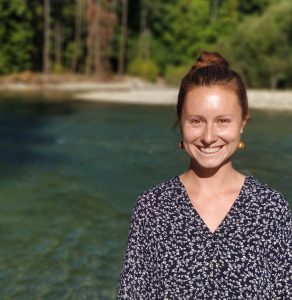Core RAISE Team

Dr. Kenneth Sherr PhD, MPH: RAISE Hub Director
Professor, Department of Global Health, University of Washington
Dr. Sherr is a Professor at the UW, Co-Director of the UW/Fred Hutch CFAR Implementation Science (IS) Core, Associate Director of the IS Program at the UW/Department of Global Health, and Director of the IS PhD Program. He leads multiple IS training efforts at the UW, and as project director provides oversight to all of the Hub’s activities.

Dr. Matthew Golden MD, MPH: NASTAD Platform Lead
Professor, School of Medicine – Allergy & Infectious Disease, University of Washington
Dr. Golden is Professor at the UW, Director of the Public Health – Seattle & King County HIV/STD Program, and co-director of the UW/Fred Hutch CFAR IS Core. Dr. Golden is an expert in public health interventions to end the HIV epidemic, as well as mentoring junior faculty and health department personnel in implementation science research. He is PI on CDC and HRSA EHE grants in King County and is a model for the sort of academic/health department engagement that the IS Hub intends to spread. As the NASTAD Platform Lead for the IS Consultation Hub, Dr. Golden works with NASTAD Leadership to lead efforts to foster implementation science research with health departments.

Dr. Christine Khosropour PhD, MPH: Principal Investigator, Cross-Hub Research
Associate Professor, Department of Epidemiology, University of Washington
Dr. Khosropour is an Assistant Professor at the UW and an Associate Director of the UW/Fred Hutch CFAR IS Core. She is actively involved in EHE implementation and implementation science research efforts in Seattle & King County and Mississippi. In addition to supporting Hub activities across aims, Dr. Khosropour will be the site PI for any multi-site implementation science research protocols that are implemented as part of the EHE IS Hub initiative.

Dr. Arianna Rubin Means PhD, MPH: EHE Implementation Research Consultation Lead
Assistant Professor, Department of Global Health, University of Washington
Dr. Means is an Assistant Professor at the UW, an Associate Director of the UW/Fred Hutch CFAR IS Core, and leads the Implementation Science Summer Institute. As a PhD-trained Implementation Scientist, leads the IS Hub’s consultation efforts. In this role, Dr. Means is the first line of engagement with EHE-supported implementation science research projects. She works to identify users’ training and consultation needs, provide implementation science support, and pull additional technical resources into consultations as needed.

Sarah Gimbel, PhD, MPH, BSN: Implementation Science Consultation Team Member
Professor, Child, Family, and Population Health Nursing, University of Washington
Dr. Gimbel is a Professor in the UW School of Nursing who specializes in applying implementation science methods in the context of research on implementation strategies to improve HIV prevention, care and treatment services. In her work with RAISE, she provides consultations for EHE-funded implementation research projects focusing on identifying and applying implementation science models and frameworks, measurement of implementation outcomes, application of mixed methods research methodologies, as well as supporting EHE health department trainings.

Monisha Sharma, PhD, MSPH: Implementation Science Consultation Team Member
Assistant Professor, Department of Global Health, University of Washington
Dr. Sharma is an Assistant Professor at the UW and leads the Health Economics Impact Study Team (HEIST) for the CFAR IS Core. In her work with RAISE, she provides consultations for EHE-funded implementation research projects in mathematical modeling, cost-effectiveness, economic interventions, and economic evaluations, and will support Hub-sponsored trainings in applicable areas.

Anjuli Wagner, PhD, MPH: Implementation Science Consultation Team Member
Assistant Professor, Department of Global Health, University of Washington
Dr. Wagner is an Assistant Professor at the UW whose work focuses on applying implementation science methods to improve the delivery of PrEP services, as well as services to engage adolescents in HIV prevention, care and treatment services. In her work with RAISE, she provides consultations for EHE-funded implementation research projects focusing on providing consultation services in implementation strategy optimization, measuring adaptation, and supporting EHE trainings.

Emma Murphy, MPH: RAISE Program Manager
As program manager, Emma Murphy supports IS Hub leadership across all project aims and provides overall coordination of hub activities.
The University of Washington/Fred Hutch Center for AIDS Research

Founded in 1988, the UW/Fred Hutch Center for AIDS Research (UW/Fred Hutch CFAR) is a partnership between the University of Washington, the Fred Hutch Cancer Center, Seattle Children’s, the Access to Advanced Health Institute and the University of Hawai`i at Mānoa. The mission of the UW/Fred Hutch CFAR is to advance knowledge in the clinical epidemiology, pathogenesis, treatment, and prevention of HIV/AIDS by fostering collaborative and interdisciplinary research, supporting career development in junior investigators, and providing research infrastructure and resources to researchers and scientists at our affiliated institutions.
Within UW/Fred Hutch CFAR, the Implementation Science Core provides resources to develop implementation science expertise within the CFAR community with the goal of creating new training opportunities for junior researchers, leading to new and innovative research, and ultimately improving the speed, efficiency, and quality of efforts to translate scientific evidence on HIV prevention and care into effective, large-scale health programs. Many of the IS Core faculty are involved in the RAISE initiative.
For more information about UW/Fred Hutch CFAR: https://depts.washington.edu/cfar
Partnerships
NASTAD

The National Alliance of State and Territorial AIDS Directors (NASTAD) is a non-profit organization that represents public health directors who lead HIV programs across the United States. Their mission is to “advance the health and dignity of people living with and impacted by HIV/AIDS, viral hepatitis, and intersecting epidemics by strengthening governmental public health and leveraging community partnerships.”
The health departments that NASTAD represents are the centerpiece of the EHE initiative. Working in collaboration with diverse community partners, health departments led the development of local EHE plans, and they are now charged with implementing those plans, monitoring and evaluating EHE efforts, and refining plans in response to experience and evolving science. The EHE Initiative involves a wide spectrum of stakeholders, including health departments, persons living with HIV and at risk for HIV, community-based organizations, healthcare organizations, clinical providers, and others. But EHE cannot be successful if health departments fail in their central organizing function. In partnership with NASTAD, RAISE is working to expand interest, knowledge, and experience with IS methods and research in public health EHE programs. The NASTAD-RAISE platform aims to assess the needs of these health departments and provide tailored technical assistance to support successful implementation of EHE plans. Our first effort will be launching a structured needs assessment of the EHE jurisdiction health departments to understand their implementation science capacity.
For more information about NASTAD: https://nastad.org/
For more information about NASTAD’s EHE work: https://nastad.org/issues/ending-hiv-epidemic
EHE Supplemental Research Projects

Since FY 2020, the NIH has funded implementation science research projects through Ending the HIV Epidemic initiative. These projects cross all four domains (diagnose, treat, prevent and respond) of EHE efforts and work in EHE jurisdictions. Since it’s inception, RAISE has worked in consultation with fourteen projects. For a full list, see here.
Expert Consultants